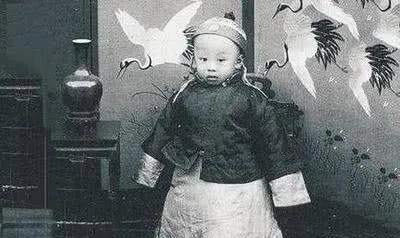Although Puyi claimed to have more than 1 million soldiers under his command when he abdicated, Puyi was only a child, and the real control of military power was Yuan Shikai and other ministers.

Yuan Shikai controlled all the new armies of the Qing Dynasty at that time, with a total of more than 200,000, which was also the real combat strength of the Qing court. The other 800,000 or so are just old-style armies controlled by the indiscriminate Eight Banners disciples, without any combat effectiveness. even. The author suspects that half of these more than 800,000 people do not exist and are empty pay. Therefore, whether to fight or not to fight is Yuan Shikai's decision, not Puyi's decision.
Yuan Shikai certainly won't fight. In fact, Yuan Shikai did not support the Qing government, and even when he was in power, he was extremely dissatisfied with many of the Qing government's practices. At the end of the Qing Dynasty, there were rumors that the regent and Yuan Shikai were at odds, and it was also thought that the Qing government took so much money every year to ask Yuan Shikai's army.
The author said that it was Yuan Shikai's army, not the Qing government's army, because these more than 200,000 troops did not listen to the government at all, but only Yuan Shikai. Although their equipment was bought by the Qing government and their military salaries were issued by the Qing government, they only listened to Yuan Shikai.
In 1911, Yuan Shikai opened his mouth to the Qing government and proposed more military expenditure to expand the strength of the new army. The Qing government had already spent all the money in the national treasury in order to establish a new army, and at this time there was really no money for Yuan Shikai.
Moreover, Sun Yat-sen and many revolutionaries in the south looked fully prepared to drive the Qing government out of China. Moreover, the Qing government also had to compensate the great powers for a lot of silver, and the national treasury was even more empty. Yuan Shikai did not want military expenses, and the gap between him and the Qing government was getting bigger and bigger, and he almost had to go out independently.
In 1911, revolutionaries led by Sun Yat-sen approached Yuan Shikai. The two sides reached a consensus on overthrowing the Qing government, but the first president of the Republic of China congress should be Yuan Shikai. Sun Yat-sen also agreed to this proposal at that time, so that within the Qing government, Yuan Shikai repeatedly contributed to the situation, so that almost all han ministers no longer helped the Qing government.
As the saying goes: those who have attained the path have much help, and those who have lost the way have little help. The Qing government, which had already lost the hearts of the people, did not want to hold on any longer, and it was better to become a seller and abdicate, but all the troubles were gone into hiding with a large amount of silver.
Some people say that the biggest promoter of overthrowing the Qing government was Yuan Shikai, and the author believes that the role of Yuan Shikai is exaggerated. He was just a scheming opportunist, and if he hadn't looked at the huge power of the revolutionaries led by Sun Yat-sen, he would have certainly supported the Qing government and shared the same sky as the revolutionary party.
Therefore, it was the revolutionaries led by Sun Yat-sen who overthrew the Qing government, not Yuan Shikai. Yuan Shikai only played a role in adding icing on the cake. Although the fruits of the Xinhai Revolution were extracted by Yuan Shikai, this was also the result of mutual compromise and there was no way out.
As for Puyi's abdication, the Qing government's end to its rule was indeed a helpless move and a wise choice. At that time, China was no longer controllable by the Qing government, and there was interference from the great powers in internal affairs, and revolutionary armies everywhere were ready to go out of control. The people's revolts were wave after wave, and feudal rule was already crumbling and the end of the crossbow. In addition, the Qing government's treasury was empty and unable to support it. Even if they wanted to support it, there was no real help from people of insight.
Puyi's abdication shows that feudal rule has no soil to exist in China, although Yuan Shikai tried to restore it after the Xinhai Revolution. It did work, but it lasted less than 100 days. The wheels of history roll forward, though sometimes they come to a standstill, sometimes there are stones under the ruts that look as if they are regressing. However, the general trend of progress is irreversible, and the end of the feudal imperial system is the general trend of historical progress at that time.